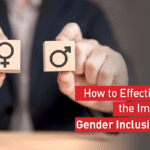Top 10 Questions to Ask Your Interviewer
Introduction
A job interview isn’t just about impressing your potential employer, it’s also your chance to evaluate if the company and role truly align with your career goals and values. Candidates who’ve been guided by a recruitment agency in UAE understand that interviews are two-way streets: while you’re being assessed, you’re also assessing if this is the right fit for your growth. While most applicants focus on preparing answers, the most impactful ones walk in with thoughtful questions too. These questions can demonstrate your ambition, curiosity, and readiness to contribute meaningfully to the team.
If you’ve been preparing with expert support, you already know the importance of making the right impression. But it’s your questions to the interviewer that can often leave the most lasting one.
Here are the top 10 questions you should consider asking during your next job interview, along with insights on why they matter.
1. Can you tell me more about the day-to-day responsibilities of this job?
This question helps you gain clarity on what your typical workday might look like. While job descriptions often offer a high-level overview, only the interviewer can provide real insights into your routine tasks, team interactions, and project timelines.
Understanding the job beyond its title ensures that you’re not walking into a role that doesn’t match your expectations or strengths.
2. What are the key challenges someone in this role would face?
No job is without its challenges. By asking this, you’re showing maturity and readiness to tackle real-world problems from day one. Whether it’s tight deadlines, cross-departmental collaboration, or managing a team, knowing what hurdles exist can help you evaluate if you’re equipped or excited to take them on.
3. How do you evaluate success in this position?
This question shows that you care about performance and accountability. It can also give you clues about the team or company culture. Does the company value innovation or prefer stability? Are metrics clearly defined, or is success subjective?
The answer will help you understand how your performance will be judged and whether that aligns with your working style.
4. What does the onboarding process look like?
A structured onboarding process is crucial for any new hire. Asking this question signals that you’re thinking ahead and already considering how you’ll integrate into the organization.
It also shows your interest in becoming a productive team member from the very beginning, while giving you a sense of the support and resources you’ll receive in the early days.
5. Can you describe the team I’ll be working with?
Since collaboration is often key to a role’s success, this question can uncover valuable information about team dynamics, leadership styles, and the personalities you’ll interact with daily.
It’s also an opportunity to understand if the team culture is collaborative, competitive, or siloed, helping you determine if it’s a fit for your personality and working style.
6. What opportunities are there for professional development and career growth?
Ambition is attractive to employers, especially when paired with a desire to grow within the organization. By asking about development opportunities, you’re showing that you’re not just looking for a job, but a place where you can build a meaningful career. It signals long-term thinking, commitment, and a proactive mindset.
This question also helps you assess how the company supports its employees beyond their current roles. Do they offer training programs, mentorship, or access to courses and certifications? Are there clear paths to internal promotions or role transitions?
The answer can reveal whether the organization truly invests in its people or expects them to remain in static roles. If upward mobility is limited, you may eventually feel stagnant even if the position starts off well. Understanding this early on helps you make an informed decision about whether the company aligns with your long-term goals and professional aspirations.
7. How would you describe the company culture?
Culture fit is just as vital as skill fit. This question helps you understand how the organization operates beyond tasks, how people interact, what values drive the team, and the kind of environment you’ll be stepping into. Is it relaxed or formal? Fast-paced or steady? Collaborative or independent?
The answer offers insights into leadership style, communication norms, work-life balance, and whether creativity, autonomy, or structure is prioritized. It also reveals if the company encourages diversity, innovation, learning, or mentorship.
Understanding the culture helps you assess if you’ll feel motivated, supported, and aligned with the team’s dynamics. Even a great job can feel wrong in the wrong environment, so it’s essential to know whether you’ll thrive or feel out of place.
This question also signals to the interviewer that you’re thinking long-term and genuinely care about finding the right mutual fit, not just landing the job.
8. What are the company’s goals for the next year?
This shows that you’re thinking about how your role fits into the larger mission of the company. Employers love candidates who see the bigger picture and are willing to align their efforts accordingly.
Understanding the company’s direction also helps you evaluate job stability and whether the organization’s vision aligns with your own career goals.
9. Are there any reservations you have about my fit for this role?
This might seem risky, but it’s a powerful question. It shows confidence, self-awareness, and a willingness to grow. More importantly, it gives you a chance to address concerns head-on and clarify any misunderstandings before the decision-making process is complete.
By 150 words into the conversation, it’s the perfect time to align your preparation with UAE job interview tips from recruitment agencies, which emphasize the importance of two-way dialogue and self-evaluation during interviews.
10. What are the next steps in the hiring process?
Always ask this at the end of the interview. It shows your eagerness to move forward and helps you set expectations regarding follow-up communication. You’ll learn when and how you’ll hear back, whether there will be additional interviews, or if there’s a task or assignment involved.
It’s a subtle way of keeping the momentum going and reminding the interviewer that you’re engaged and ready.
Bonus Tips for Framing Your Questions
- Tailor your questions: Don’t ask what you can easily Google. Instead, show that you’ve researched the company and are asking thoughtful follow-ups.
- Be genuinely curious: Ask questions that genuinely matter to you. The more personal your curiosity, the more confident and natural you’ll sound.
- Avoid focusing too early on salary or benefits: While important, these topics are better saved for later stages unless brought up by the interviewer.
Why These Questions Matter
Asking strong questions doesn’t just help you, it benefits your interviewer too. It creates a dynamic conversation, shifts the tone from interrogation to collaboration, and positions you as someone who is proactive and insightful.
If you’re working with a professional recruiter, these questions can also be refined during mock interviews or coaching sessions. These are the kind of Questions recommended by recruitment agency UAE, tailored to maximize your impression while ensuring clarity and alignment for both sides.
The right questions can reveal more about a company than a dozen job ads ever could. They help you assess fit, clarify expectations, and ultimately make smarter decisions about your career.
Every interview is an opportunity, not just to get hired, but to understand the value you bring and where you want to take it.
So the next time you’re preparing for a big interview, don’t just think about how you’ll answer questions. Think about the ones you’ll ask too.


